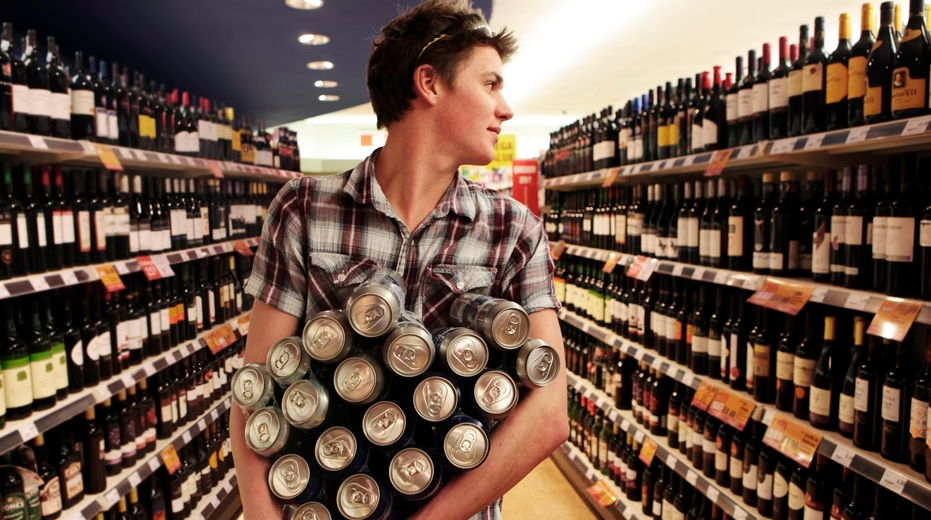1. The Historical Evolution of Liquor Stores
The history of liquor stores dates back to ancient civilizations where the sale and distribution of alcoholic beverages began. Initially, alcohol was primarily produced and consumed within households or small communities. With the advent of urbanization and trade, dedicated shops emerged to sell various types of alcohol. In medieval Europe, taverns and inns served as the primary venues for purchasing and consuming alcoholic beverages. These establishments were often regulated by local authorities to ensure quality and control over the sale of alcohol.
The industrial revolution brought significant changes to the liquor industry. With mass production techniques, alcohol became more accessible and affordable, leading to the establishment of specialized liquor stores. These stores offered a wide range of alcoholic beverages, catering to diverse tastes and preferences. In the United States, the Prohibition era (1920-1933) significantly impacted the liquor industry, leading to the rise of illegal speakeasies and a black market for alcohol. After the repeal of Prohibition, liquor stores were once again legalized and became a staple in communities across the country.
2. The Role of Liquor Stores in Local Economies
ilquor store play a crucial role in the economic landscape of many communities. They generate significant revenue through the sale of alcoholic beverages, contributing to local and state tax revenues. In many states, the sale of alcohol is heavily regulated and taxed, providing a substantial source of income for government budgets. Additionally, liquor stores create employment opportunities, from store clerks and managers to delivery drivers and administrative staff.
Furthermore, liquor stores often support local breweries, wineries, and distilleries by stocking their products. This not only promotes local businesses but also fosters a sense of community pride in locally produced goods. The presence of liquor stores can also attract other businesses to the area, such as restaurants, bars, and entertainment venues, creating a vibrant local economy. However, it is essential for liquor store owners to operate responsibly, ensuring that they comply with all regulations and promote safe consumption practices.
3. The Variety and Specialization of Modern Liquor Stores
Modern liquor stores have evolved to offer an extensive range of products, catering to the diverse preferences of consumers. From traditional spirits like whiskey, vodka, and rum to craft beers, fine wines, and artisanal liquors, these stores provide a vast selection of alcoholic beverages. Many liquor stores also specialize in certain types of alcohol, such as wine boutiques, craft beer shops, or stores dedicated to rare and aged spirits.
In addition to a wide product range, modern liquor stores often provide educational resources to help customers make informed choices. Tasting events, workshops, and informative displays are common features in many stores. Some high-end liquor stores even employ sommeliers or certified specialists who can offer expert advice on pairings and selections. This emphasis on education and specialization enhances the customer experience and fosters a deeper appreciation for the products offered.
4. The Impact of E-Commerce and Technology on Liquor Stores
The rise of e-commerce and advancements in technology have significantly transformed the liquor store industry. Online liquor stores have become increasingly popular, offering the convenience of shopping from home and delivering products directly to customers’ doorsteps. These online platforms often provide detailed descriptions, customer reviews, and recommendations, making it easier for consumers to explore new products and make informed decisions.
Moreover, technology has also enhanced the in-store experience. Many liquor stores now use digital inventory systems, point-of-sale technology, and customer loyalty programs to streamline operations and improve customer service. Mobile apps and websites allow customers to browse products, check availability, and even place orders for pickup or delivery. The integration of technology has made it easier for liquor stores to manage their inventory, track sales trends, and offer personalized promotions to their customers.
5. The Social and Ethical Responsibilities of Liquor Stores
While liquor stores provide economic benefits and consumer convenience, they also bear significant social and ethical responsibilities. The sale of alcohol is associated with various social issues, including underage drinking, alcohol abuse, and impaired driving. Therefore, it is crucial for liquor store owners and employees to adhere to strict regulations and promote responsible consumption.
Age verification is a fundamental responsibility for liquor stores to prevent underage sales. Training programs for staff on identifying fake IDs and handling intoxicated customers are essential. Additionally, liquor stores can promote awareness campaigns on the dangers of excessive drinking and support initiatives aimed at reducing alcohol-related harm in the community.
Ethical considerations also extend to the marketing and advertising of alcoholic beverages. Liquor stores should avoid marketing practices that target vulnerable populations or glamorize excessive drinking. By prioritizing social responsibility and ethical conduct, liquor stores can positively contribute to their communities while minimizing the negative impacts associated with alcohol consumption.
In conclusion, liquor stores have a rich history and play a vital role in modern society. From their economic contributions to their diverse product offerings and the integration of technology, liquor stores continue to evolve and adapt to changing consumer preferences. However, with their growth and influence comes the responsibility to operate ethically and promote safe drinking practices. By balancing business objectives with social responsibilities, liquor stores can thrive while fostering a healthier and more informed community.

